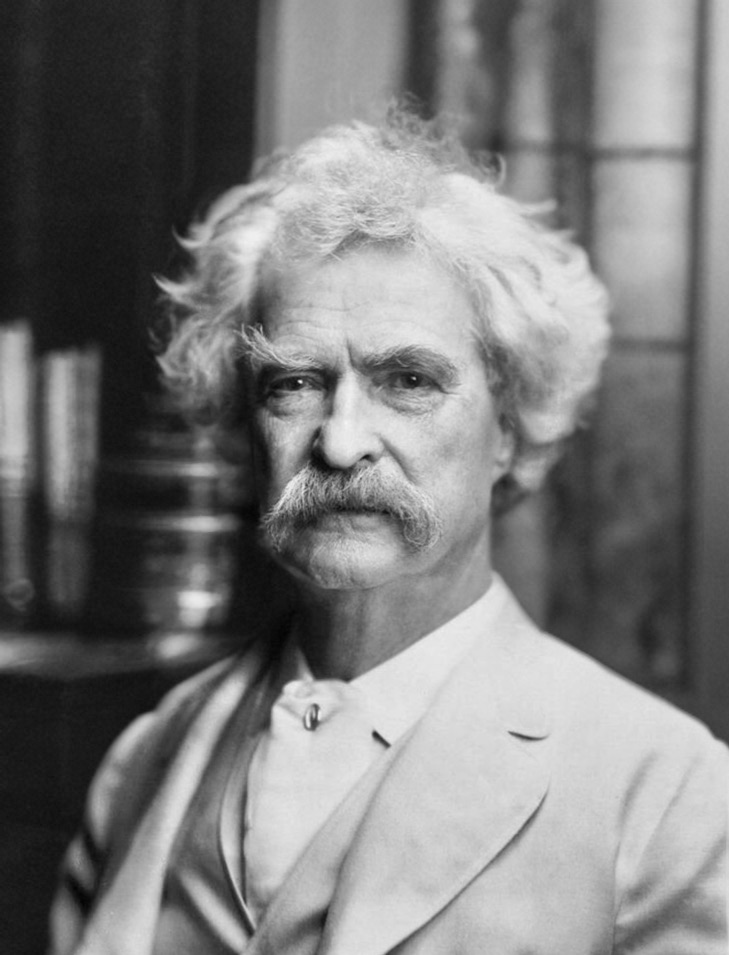
Mark Twain, born Samuel Langhorne Clemens on November 30, 1835, in Florida, Missouri, grew up in a small town along the Mississippi River. The river, with its bustling steamboats and vibrant characters, would later play a significant role in his literary works. Twain’s father, a lawyer and judge, died when Samuel was just 11 years old, leaving the family in financial hardship. Young Samuel was forced to leave school and became a printer’s apprentice, setting type for the local newspaper. His early exposure to the written word and the world of print ignited his lifelong passion for storytelling.
Apprenticeships and Formative Experiences: In his teens, Twain worked as a printer in several cities, including New York, Philadelphia, and St. Louis, gaining valuable experiences that broadened his horizons. However, it was his time as a steamboat pilot on the Mississippi River that had the most profound impact on him. The river’s vastness, unpredictability, and the colorful characters he encountered during this period deeply influenced his writing. It was during this time that he adopted the pen name “Mark Twain,” a riverboat term meaning “two fathoms deep,” signifying safe water for navigation.
Sense of Humor and Writing Style: Twain’s sense of humor was a defining characteristic of his writing. He had a sharp wit, a keen eye for the absurdities of human nature, and a talent for satire. His humor often carried a deeper meaning, critiquing social norms, injustices, and the contradictions of society. Twain’s writing style was marked by his use of colloquial speech and regional dialects, which brought authenticity and vividness to his characters and settings. His ability to blend humor with serious social commentary made his works both entertaining and thought-provoking.
Literary Career and Major Works: Twain’s literary career took off with the publication of “The Celebrated Jumping Frog of Calaveras County” in 1865, a humorous short story that gained him national recognition. He went on to write some of the most celebrated novels in American literature. “The Adventures of Tom Sawyer” (1876) and its sequel, “The Adventures of Huckleberry Finn” (1884), are considered masterpieces, offering a vivid portrayal of life along the Mississippi River while addressing complex themes such as race, freedom, and morality. Other notable works include “The Prince and the Pauper” (1881), “A Connecticut Yankee in King Arthur’s Court” (1889), and “The Innocents Abroad” (1869), showcasing Twain’s versatility as a writer.
Reputation, Philosophy, and Later Years: In his later years, Twain became one of America’s most beloved literary figures. Despite his fame and success, he struggled with personal tragedies, including the deaths of his wife and three of his children. His writing took on a more somber and reflective tone, and he became increasingly cynical about humanity. Twain’s philosophy was rooted in a deep skepticism of authority, organized religion, and societal conventions, which he often expressed through his biting satire.
As he aged, Twain experienced profound loneliness, but he found solace in his grandfatherly friendships with young schoolgirls, whom he affectionately called his “angelfish.” These relationships provided him with companionship and a sense of purpose during his final years. He cherished these friendships, seeing the girls as a source of youthful energy and joy that helped alleviate the sorrow and isolation he felt.

Legacy in Literature: Mark Twain’s legacy as an American writer is immense. He is often hailed as the “father of American literature” for his pioneering use of vernacular speech, his exploration of the American identity, and his unflinching critique of societal issues. His works continue to be studied and celebrated for their humor, insight, and relevance. Twain’s ability to capture the complexities of the human experience, particularly in the context of American society, has cemented his place as one of the greatest writers in literary history.
Among his most famous novels, “The Adventures of Tom Sawyer” and “The Adventures of Huckleberry Finn” stand out as quintessential works of American literature. These novels, along with “The Prince and the Pauper” and “A Connecticut Yankee in King Arthur’s Court,” reflect Twain’s genius in blending humor, satire, and social commentary. His contributions to literature have left an indelible mark, influencing generations of writers and shaping the course of American storytelling.
-Lê Nguyễn Thanh Phương-
